Pakistan Under Benazir Bhutto 1993-1996
By: Najam Sethi
-
Rs 2,545.75
- Rs 2,995.00
- 15%
You save Rs 449.25.
Due to constant currency fluctuation, prices are subject to change with or without notice.
Both Benazir Bhutto and Nawaz Sharif didn't acquit themselves well in the "trial of democracy" from 1988 to 1993. They did worse confronting the "dilemma of democracy" from 1993-1999 - how an elected government can complete its five year term and also provide a level playing field to the "government-in-waiting" to turn the tables at the end of the period. In consequence, Pakistan was driven straight into the jaws of martial law in 1999.
This volume traces the rise and fall of the second Bhutto regime from 1993-96. It records how, through the good offices of the Establishment, she began on a conciliatory note with Nawaz Sharif by offering to nominate a consensus candidate (Wasim Sajjad) as President in exchange for jointly undoing the notorious Clause 58-2(B) of the 8th Constitutional Amendment which hung like the sword of Damocles over every prime minister. It tracks the negotiations to breaking point, compelling her to nominate her "own man", Farooq Leghari, to the Presidency. It records Nawaz Shun cunning ways to drive a wedge between Leghari and Bhutto, which eventually led the former to use the 8th Amendment to sack the latter.
The major policy issues that preoccupied Benazir Bhutto in her second term were nuclear proliferation, MQM terrorism in Karachi and conflict in Kashmir. The book explains how the US applied economic and military sanctions to pressure Pakistan to cap, freeze and roll back its nuclear program but failed to achieve its objective. It details how she successfully tackled and put down MQM terrorism through effective use of civil-military power. And it records how she teamed up with the military to promote jihad in India-Occupied Kashmir.
The book is about foul play by both Bhutto and Sharif; foreign policy blues; warlords in Afghanistan; mythology of Mohajirism; nuclear policy; Mehran gate; General Mirza Aslam Beg's "grand plan"; threat of an India-Pak nuclear war; journalists for sale; pains of privatization; Indo-Pak relations; doctrine of necessity; corruption and Surrey gate. The analysis covers the mind of Benazir Bhutto, her Achilles heel and fatal flaws.
It is indispensable reading for the student of history who wishes to understand how and why democracy failed to take root in the 1990s.
Both Benazir Bhutto and Nawaz Sharif didn't acquit themselves well in the "trial of democracy" from 1988 to 1993. They did worse confronting the "dilemma of democracy" from 1993-1999 - how an elected government can complete its five year term and also provide a level playing field to the "government-in-waiting" to turn the tables at the end of the period. In consequence, Pakistan was driven straight into the jaws of martial law in 1999.
This volume traces the rise and fall of the second Bhutto regime from 1993-96. It records how, through the good offices of the Establishment, she began on a conciliatory note with Nawaz Sharif by offering to nominate a consensus candidate (Wasim Sajjad) as President in exchange for jointly undoing the notorious Clause 58-2(B) of the 8th Constitutional Amendment which hung like the sword of Damocles over every prime minister. It tracks the negotiations to breaking point, compelling her to nominate her "own man", Farooq Leghari, to the Presidency. It records Nawaz Shun cunning ways to drive a wedge between Leghari and Bhutto, which eventually led the former to use the 8th Amendment to sack the latter.
The major policy issues that preoccupied Benazir Bhutto in her second term were nuclear proliferation, MQM terrorism in Karachi and conflict in Kashmir. The book explains how the US applied economic and military sanctions to pressure Pakistan to cap, freeze and roll back its nuclear program but failed to achieve its objective. It details how she successfully tackled and put down MQM terrorism through effective use of civil-military power. And it records how she teamed up with the military to promote jihad in India-Occupied Kashmir.
The book is about foul play by both Bhutto and Sharif; foreign policy blues; warlords in Afghanistan; mythology of Mohajirism; nuclear policy; Mehran gate; General Mirza Aslam Beg's "grand plan"; threat of an India-Pak nuclear war; journalists for sale; pains of privatization; Indo-Pak relations; doctrine of necessity; corruption and Surrey gate. The analysis covers the mind of Benazir Bhutto, her Achilles heel and fatal flaws.
It is indispensable reading for the student of history who wishes to understand how and why democracy failed to take root in the 1990s.
PAKISTAN UNDER BENAZIR BHUTTO 1988-1990 TRIAL OF DEMOCRACY - 1
By: Najam Sethi
Rs 1,695.75 Rs 1,995.00 Ex Tax :Rs 1,695.75
Same Page: PAKISTAN UNDER IMRAN KHAN 2018-2022 - REPORTAGE, COMMENT, ANALYSIS BY NAJAM SETHI
By: Najam Sethi
Rs 3,595.50 Rs 3,995.00 Ex Tax :Rs 3,595.50
Zubin Mehta: A Musical Journey (An Authorized Biography)
By: VOID - Bakhtiar K. Dadabhoy
Rs 892.50 Rs 1,050.00 Ex Tax :Rs 892.50
Jinnah: His Successes, Failures and Role in History
By: Ishtiaq Ahmad
Rs 4,045.50 Rs 4,495.00 Ex Tax :Rs 4,045.50
PAKISTAN UNDER BENAZIR BHUTTO 1988-1990 TRIAL OF DEMOCRACY - 1
By: Najam Sethi
Rs 1,695.75 Rs 1,995.00 Ex Tax :Rs 1,695.75
Pakistan The Garrison State: Origins, Evolution, Consequences (1947-2011)
By: Ishtiaq Ahmad
Rs 994.50 Rs 1,105.00 Ex Tax :Rs 994.50
The Origins of Political Order From Prehuman Times to the French RevolutioN
By: Francis Fukuyama
Rs 4,045.50 Rs 4,495.00 Ex Tax :Rs 4,045.50
Battles Half Won : Indias Improbable Democracy
By: Ashutosh Varshney
Rs 3,565.75 Rs 4,195.00 Ex Tax :Rs 3,565.75
Curzon's India: Networks of Colonial Governance, 1899-1905
By: Dhara Anjaria
Rs 845.75 Rs 995.00 Ex Tax :Rs 845.75
A Brief History of The Third Reich: The Rise and Fall of the Nazis - Paperback
By: Martyn Whittock
Rs 1,695.75 Rs 1,995.00 Ex Tax :Rs 1,695.75
US Policy in Afghanistan and Iraq
By: Seyom Brown & Robert H. Scales
Rs 2,375.75 Rs 2,795.00 Ex Tax :Rs 2,375.75
The Peacemakers: India and the Quest for One World
By: Manu Bhagwan
Rs 722.50 Rs 850.00 Ex Tax :Rs 722.50
The Invisible Bridge: The Fall of Nixon and the Rise of Reagan
By: Rick Perlstein
Rs 1,827.50 Rs 2,150.00 Ex Tax :Rs 1,827.50
Jinnah: His Successes, Failures and Role in History
By: Ishtiaq Ahmad
Rs 4,045.50 Rs 4,495.00 Ex Tax :Rs 4,045.50
PAKISTAN UNDER BENAZIR BHUTTO 1988-1990 TRIAL OF DEMOCRACY - 1
By: Najam Sethi
Rs 1,695.75 Rs 1,995.00 Ex Tax :Rs 1,695.75
Pakistan The Garrison State: Origins, Evolution, Consequences (1947-2011)
By: Ishtiaq Ahmad
Rs 994.50 Rs 1,105.00 Ex Tax :Rs 994.50
The Holy Grail of Investing - The World's Greatest Investors Reveal Their Ultimate Strategies for Financial Freedom
By: Tony Robbins
Rs 6,205.50 Rs 6,895.00 Ex Tax :Rs 6,205.50
Interior Design Masterclass: 100 Lessons from America's Finest Designers on the Art of Decoration
By: Carl Dellatore
Rs 15,475.50 Rs 17,195.00 Ex Tax :Rs 15,475.50
US Policy in Afghanistan and Iraq
By: Seyom Brown & Robert H. Scales
Rs 2,375.75 Rs 2,795.00 Ex Tax :Rs 2,375.75
The Tragedy of Great Power Politics
By: John J. Mearsheimer
Rs 7,105.50 Rs 7,895.00 Ex Tax :Rs 7,105.50
Of Human Kindness - What Shakespeare Teaches Us about Empathy
By: Paula Marantz Cohen
Rs 4,647.50 Rs 9,295.00 Ex Tax :Rs 4,647.50
The Book of Greek and Roman Folktales, Legends, and Myths
By: William Hansen
Rs 14,395.50 Rs 15,995.00 Ex Tax :Rs 14,395.50
Master Slave Husband Wife - An Epic Journey from Slavery to Freedom
By: Ilyon Woo
Rs 3,595.50 Rs 3,995.00 Ex Tax :Rs 3,595.50
Black Cake - The No 2 New York Times Bestseller
By: Charmaine Wilkerson
Rs 2,245.50 Rs 2,495.00 Ex Tax :Rs 2,245.50
Snow the masterful country house murder mystery
By: Banville John
Rs 2,375.75 Rs 2,795.00 Ex Tax :Rs 2,375.75
One Pot (The Australian Women's Weekly: New Essentials)
By: Unknown
Rs 845.75 Rs 995.00 Ex Tax :Rs 845.75
Essential Mexican Everyday Dishes For You To Enjoy
By: Parragon Books
Rs 1,721.25 Rs 2,295.00 Ex Tax :Rs 1,721.25
The Stigma Matrix - Gender, Globalization, and the Agency of Pakistan's Frontline Women
By: Fauzia Husain
Rs 8,995.50 Rs 9,995.00 Ex Tax :Rs 8,995.50
The Very Hungry Caterpillar's Very Big Colouring Book
By: Eric Carle
Rs 1,615.50 Rs 1,795.00 Ex Tax :Rs 1,615.50
Aquaman Vol. 5: Sea of Storms (The New 52)
By: Jeff Parker
Rs 2,970.75 Rs 3,495.00 Ex Tax :Rs 2,970.75
The Road to Ruin: The Global Elites' Secret Plan for the Next Financial Crisis
By: James Rickards
Rs 2,205.75 Rs 2,595.00 Ex Tax :Rs 2,205.75
The Naughtiest Girl Is a Monitor the Naughtiest Girl Series Book 3
By: Enid Blyton
Rs 382.50 Rs 450.00 Ex Tax :Rs 382.50
Queen of Air and Darkness (Volume 3) (The Dark Artifices) Paperback
By: Cassandra Clare
Rs 2,425.50 Rs 2,695.00 Ex Tax :Rs 2,425.50
A Life of Style - Fashion, Home, Entertaining
By: Rebecca Moses
Rs 3,395.75 Rs 3,995.00 Ex Tax :Rs 3,395.75
Pokémon Adventures: Omega Ruby and Alpha Sapphire, Vol. 1
By: Hidenori Kusaka
Rs 2,875.50 Rs 3,195.00 Ex Tax :Rs 2,875.50
Zubin Mehta: A Musical Journey (An Authorized Biography)
By: VOID - Bakhtiar K. Dadabhoy
Rs 892.50 Rs 1,050.00 Ex Tax :Rs 892.50
PAKISTAN UNDER BENAZIR BHUTTO 1988-1990 TRIAL OF DEMOCRACY - 1
By: Najam Sethi
Rs 1,695.75 Rs 1,995.00 Ex Tax :Rs 1,695.75
Same Page: PAKISTAN UNDER IMRAN KHAN 2018-2022 - REPORTAGE, COMMENT, ANALYSIS BY NAJAM SETHI
By: Najam Sethi
Rs 3,595.50 Rs 3,995.00 Ex Tax :Rs 3,595.50
Jinnah: His Successes, Failures and Role in History
By: Ishtiaq Ahmad
Rs 4,045.50 Rs 4,495.00 Ex Tax :Rs 4,045.50
PAKISTAN UNDER BENAZIR BHUTTO 1988-1990 TRIAL OF DEMOCRACY - 1
By: Najam Sethi
Rs 1,695.75 Rs 1,995.00 Ex Tax :Rs 1,695.75
Pakistan The Garrison State: Origins, Evolution, Consequences (1947-2011)
By: Ishtiaq Ahmad
Rs 994.50 Rs 1,105.00 Ex Tax :Rs 994.50












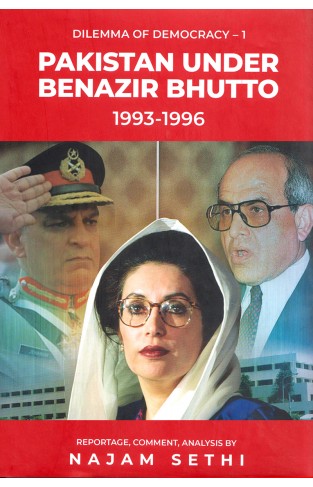
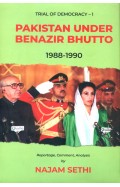
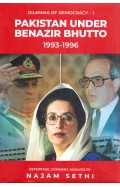
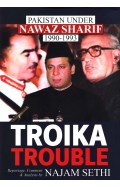
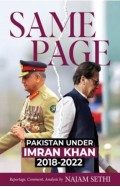
-120x187.jpg?q6)





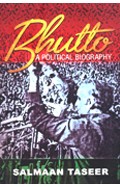
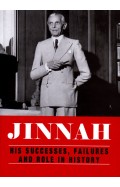
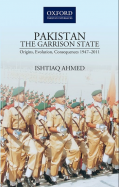
-120x187.jpg?q6)


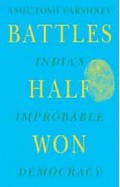


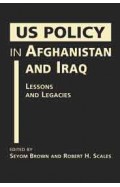








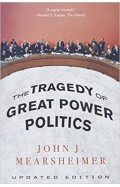














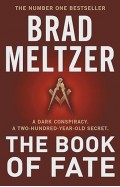

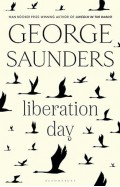





-120x187.jpg?q6)


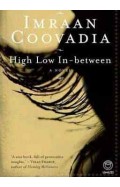


-(The-Dark-Artifices)-Paperback-120x187.jpg?q6)

-Paperback-120x187.jpg?q6)
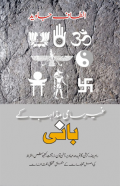




-120x187.jpg?q6)

